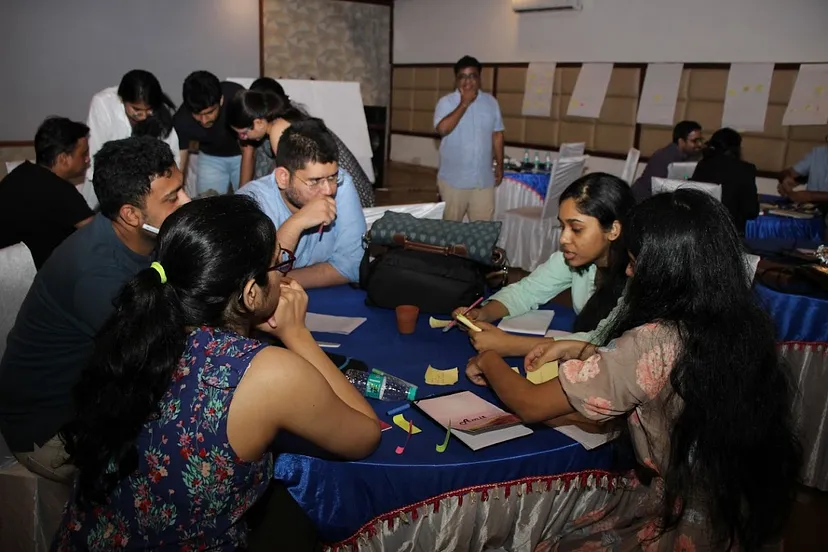As a working professional in New Zealand who has been away from India for almost a decade, I had almost decided to never return back. In 2011, India saw one of its biggest people’s movements after its independence- The India Against Corruption movement, also known as the Anna Hazare movement, which saw participation from youth who wanted to engage with the system to bring change. I was one of them and a very early joinee too. Thousands of young professionals, including me, joined the movement and continue to contribute to the governance sector in many ways- as entrepreneurs, investors, volunteers, IAS officers, amongst many other ways.
I actually did not think much as I was overwhelmed by the opportunity to contribute to a cause which was bigger than anything I had done earlier- being part of something which could change the face of the nation, forever.
Not very long ago, a person aspiring to contribute to what is broadly considered the social sector in India had a single trajectory mapped out for them, i.e prepare for years to enter the civil services through the highly competitive national level examination colloquially called the UPSC (Union Public Service Commission). Consequently, they would become bureaucrats placed across multiple departments across the country based on ranking and preferences.
However, the preference of youth in India today is very different. Currently, multiple avenues are open for young people to work in the social impact sector. It is important to note that the last decade saw multiple socio-political situations across the country which facilitated interest and opened spaces for professionals who till then worked in the corporate sector and the young graduates with diverse backgrounds alike. Across the political spectrum there is visible interest to contribute positively to the ongoing socio-political shifts.
Typically, in countries abroad, especially in the West, professionals actively engage with the governance ecosystem. For instance, in the United States, consulting firms such as McKinsey, policy think tanks such as Brookings, Fellowships such as America Govern have had a history of working on developmental problems in collaboration with governments. The career trajectory for those interested in these spaces is clearly mapped with defined public policy programs focusing on niche interests such as education or international affairs.
In India, similar models have come up in the recent past to leverage smart professionals, young and experienced, within both the public and private offices. These include think tanks such as PRS Legislative Research, Centre for Policy Research, fellowships such as the LAMP (Legislative Assistant for a Member of Parliament) fellowship, political consultancies such as IPAC (Indian Political Action Committee) and development consultants like GDi, Dalberg and BCG (Boston Consulting Group). One must also note that, while there has been interest from private sector professionals to contribute to governance issues, there is a parallel budding interest among governments to bring in professional talent from the private sector and corporates to tune their work to create social impact. Ministries and departments at the union and state governments have been recruiting Young Professionals with both generalist and specialist expertise on a contractual basis, typically for a year or two. Even the central policy think tank NITI Aayog recruits Young Professionals and lateral hires regularly across sectors.
I believe in the importance of home-grown perspectives instead of trying to force fit Indian problem statements into case studies far from the contexts here. India needs to build expertise based on its unique socio-cultural-political environments. Firstly, one should note that the diversity of India changes from state to state or often district to district. It is impossible to standardise solutions across board without understanding the nuances. Secondly, governance solutions need to be evidence-backed. This gives rise to two major challenges. One is the lack of coherent data systems existing in the realm of public policy and two, lack of a high-quality talent pool in the sector.
Bright young professionals are in demand everywhere and niche firms operating in the impact consulting space need to map a holistic approach for growth for passionate individuals entering the space. Further, we need to have the right role models in the sector who inspire others from their conduct and professional skills. We see more and more professionals leaving the profession after 1–2 years because we do not have good role models providing selfless guidance to young colleagues.
I personally believe that the holistic approach to professional growth should be a combination of: skill building, financial growth and a culture which makes them stay in the sector.
